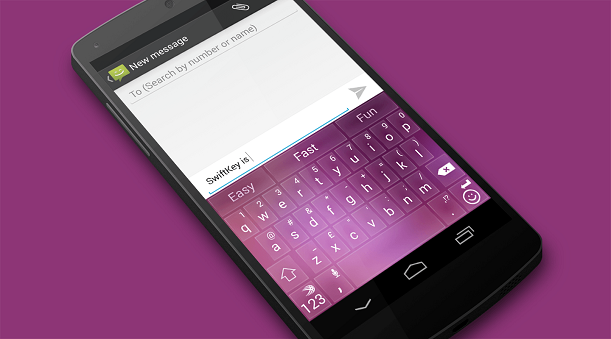Microsoft has bought keyboard app maker SwiftKey for a reported $250 million.
The US company said the acquisition of the app, which is installed in more than 300 million Android and iOS devices, could also boost its AI projects.
The keyboard uses predictive technology that claims to learn a user’s personal writing style, adapts to unusual words or phrases that they commonly use and predicts what they will write next.
SwiftKey said users have clocked up more than 23,000 years in combined typing time.
Harry Shum, Executive Vice-President, Technology and Research, at Microsoft said: “We’ll continue to develop SwiftKey’s market-leading keyboard apps for Android and iOS as well as explore scenarios for the integration of the core technology across the breadth of our product and services portfolio.
“Moreover, SwiftKey’s predictive technology aligns with Microsoft’s investments and ambition to develop intelligent systems that can work more on the user’s behalf and under their control.”
Other plans for SwiftKey, whose team will join Microsoft as part of the deal, include integrating its technology into Microsoft’s own Word Flow keyboard.
The fresh focus on software comes after more bad news for Microsoft’s Windows Phone ecosystem. Despite buying Nokia’s handset arm in a high-profile deal in 2014 for €5.4 billion, sales have been lacklustre.
Last week it announced its Q4 Windows Phone sales were 4.5 million, down 57 percent from the previous year. According to figures from venture capital firm Andreessen Horowitz’s Benedict Evans, over its lifetime, Windows Phone amassed 110 million sales, compared to combined iOS and Android sales of 4.5 billion during same period.
Tim Coulling, Canalys Senior Analyst, was also pessimistic the future of the Windows Phone ecosystem, even if it tries to follow the success of Microsoft’s Surface tablets.
He said: “Creating a premium Surface Phone might generate some buzz about the platform, but it will be risky and repeating what it has achieved in the tablet space will be tough. It must get OEMs to buy into a platform in decline as well as convince consumers to switch from an iPhone or high-end Android smart phone.”


